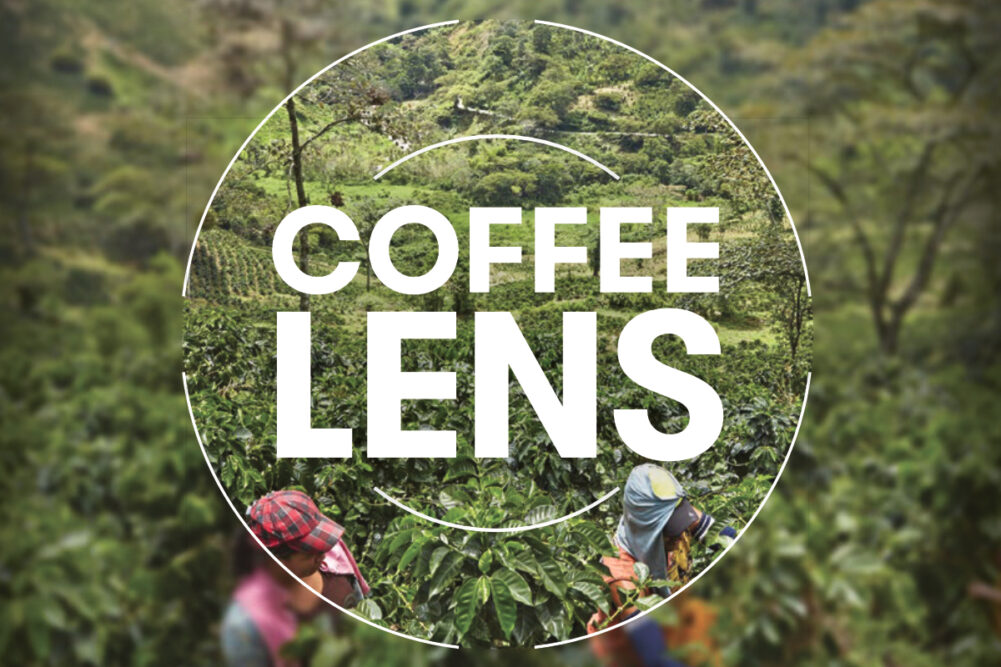LONDON — Reducing greenhouse gas emission intensity by 15% across its global footprint and making all its coffee supply chains deforestation-free are two goals that Olam Coffee, a business of Singapore-based Olam International, wants to reach before 2025. Other 2025 goals in a program called “Coffee LENS” are 200,000 households benefiting from improved productivity and incomes and all children of coffee farmers in the supply chain having access to education and being engaged in vocational training.
LENS stands for livelihoods, education and nature at scale. Olam Coffee’s supply chains cover 18 origins and a sourcing network of an estimated 424,000 farmers. Olam Coffee plans to collaborate with its customers, governments, financial institutions, multi-lateral agencies and non-governmental organizations (NGOs) to achieve the goals.
“While the coffee supply chain is highly fragmented making direct access to farmers difficult, our sustainability ambitions have grown each year, promoting the importance of traceability, quality, profitable farmers and living landscapes,” said Vivek Verma, managing director and chief executive officer of Olam Coffee. “Despite our collective efforts however, many of the complex challenges in coffee remain and are now compounded by COVID-19-imposed restrictions to markets and skilled labor squeezing incomes further. Our Coffee LENS strategy therefore focuses our efforts on increasing the impact of what we are already doing through a more structured approach.”
AtSource, which is a platform with economic, social and environmental metrics, will help Olam Coffee report on and better understand the interventions required to meet its goals, he said.
Olam Coffee sources from Central America, South America, Africa and Asia. Olam Coffee is part of Olam Food Ingredients, an Olam International operating group.





